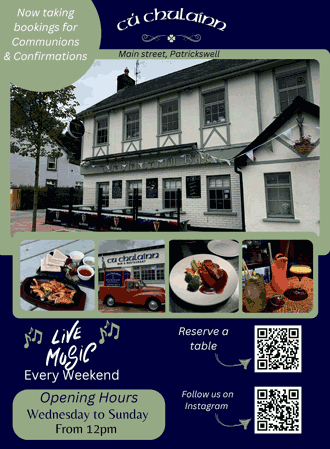ONE in four people surveyed who have paid for sex, said they encountered trafficked or controlled women in Ireland. Some said they refused to continue with the transaction as the believed the women were “too young, unhappy, unwilling or intimidated”. Furthermore, the survey carried out by the Immigrant Council of Ireland, says that the majority of men are middle to high earners in society, have third level education and are in long-term relationships if not married.
Being named in the local newspaper if prosecuted for sexual offences ranked as one of the highest rated deterrents to men buying sex. That, and obtaining a criminal record are only surpassed by the fear of contracting a sexually transmitted disease.
Denise Charlton, Chief Executive of the Immigrant Council of Ireland said: “These findings are an important contribution to the current debate on whether to curb exploitation, abuse and trafficking by targeting the buyers of sex. We have now heard from the buyers themselves that such laws would be a deterrent.”
The profile of those who use prostitutes has shown they are most likely to be middle aged men (36% aged 25 and 44, with 48% aged over 45) who have completed third level education (41%) and are earning more than €20,000 (70%) with just over a fifth topping the €40,000 wage bracket (21%). In addition just over half said they were in a relationship.
“The majority of buyers had paid for sex when abroad, mostly in Britain, Germany, the Netherlands and Thailand showing that buyers are attracted to destinations where prostitution has been legalised or is tolerated.”
The online survey is part of a Europe wide project, ‘Stop Traffick!’ supported by the EU, and which over a three-month period used social media, websites and chatrooms to invite responses from both Irish sex buyers and those who do not use prostitutes.
“We know too that the image of the happy independent hooker which is being portrayed by those opposed to new laws is not the reality. 24% of buyers reconsidered a transaction because they believed the women and girls involved were controlled, unhappy, too young, unwilling or intimidated.
“The fact that buyers generally have a higher income, are better educated and in a relationship dispels the myth of prostitution being used by people who are lonely, isolated or insecure.”
The survey results will be shared with the Oireachtas Justice Committee as they continue their consultation process into legislation for prostitution.
“We hope it will form part of their deliberations as they continue the review of the laws on prostitution”, concluded Ms Charlton.
IN NUMBERS
411 survey responses,
57 men were buyers of sex
1 woman admitted paying for sex
24% reconsidered the transaction
32% feared disease
19% feared a criminal conviction
17% feared jail time
17% feared being named in local newspaper.






